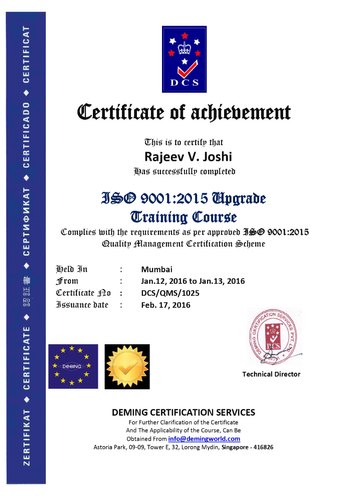Description
Sustainable cities, urban sustainability, or eco-city (also ecocity) is a city designed with consideration for social, economic, environmental impact (commonly referred to as the triple bottom line), and resilient habitat for existing populations, without compromising the ability of future generations to experience the same. The UN Sustainable Development Goal 11 defines sustainable cities as those that are dedicated to achieving green sustainability, social sustainability and economic sustainability. They are committed to doing so by enabling opportunities for all through a design focused on inclusivity as well as maintaining a sustainable economic growth. The focus also includes minimizing required inputs of energy, water, and food, and drastically reducing waste, output of heat, air pollution – CO
2, methane, and water pollution. Richard Register first coined the term ecocity in his 1987 book Ecocity Berkeley: Building Cities for a Healthy Future, where he offers innovative city planning solutions that would work anywhere. Other leading figures who envisioned sustainable cities are architect Paul F Downton, who later founded the company Ecopolis Pty Ltd, as well as authors Timothy Beatley and Steffen Lehmann, who have written extensively on the subject. The field of industrial ecology is sometimes used in planning these cities.The UN Environment Programme calls out that most cities today are struggling with environmental degradation, traffic congestion, inadequate urban infrastructure, in addition to a lack of basic services, such as water supply, sanitation, and waste management. A sustainable city should promote economic growth and meet the basic needs of its inhabitants, while creating sustainable living conditions for all. Ideally, a sustainable city is one that creates an enduring way of life across the four domains of ecology, economics, politics and culture. The European Investment Bank is assisting cities in the development of long-term strategies in fields including renewable transportation, energy efficiency, sustainable housing, education, and health care. The European Investment Bank has spent more than €150 billion in bettering cities over the last eight years. Cities occupy just 3 percent of the Earth’s land but account for 60 to 80 percent of energy consumption and at least 70 percent of carbon emissions. Thus, creating safe, resilient and sustainable cities is one of the top priorities of the Sustainable Development Goals. The Adelaide City Council states that socially sustainable cities should be equitable, diverse, connected, democratic, and provide a good quality of life. Priorities of a sustainable city include the ability to feed itself with a sustainable reliance on the surrounding natural environment and the ability to power itself with renewable sources of energy, while creating the smallest conceivable ecological footprint and the lowest quantity of pollution achievable. All of this is to be accomplished by efficiently using the land in ways such as composting used materials, recycling, and/or converting waste-to-energy. The idea is that these contributions will lead to a decrease of the city’s impact on climate change.Today, 55 percent of the world is estimated to be living in urban areas and the United Nations estimates that by the year 2050, that number will rise to 70 percent. These large communities provide both challenges and opportunities for environmentally-conscious developers. There are distinct advantages to further defining and working towards the goals of sustainable cities.
2, methane, and water pollution. Richard Register first coined the term ecocity in his 1987 book Ecocity Berkeley: Building Cities for a Healthy Future, where he offers innovative city planning solutions that would work anywhere. Other leading figures who envisioned sustainable cities are architect Paul F Downton, who later founded the company Ecopolis Pty Ltd, as well as authors Timothy Beatley and Steffen Lehmann, who have written extensively on the subject. The field of industrial ecology is sometimes used in planning these cities.The UN Environment Programme calls out that most cities today are struggling with environmental degradation, traffic congestion, inadequate urban infrastructure, in addition to a lack of basic services, such as water supply, sanitation, and waste management. A sustainable city should promote economic growth and meet the basic needs of its inhabitants, while creating sustainable living conditions for all. Ideally, a sustainable city is one that creates an enduring way of life across the four domains of ecology, economics, politics and culture. The European Investment Bank is assisting cities in the development of long-term strategies in fields including renewable transportation, energy efficiency, sustainable housing, education, and health care. The European Investment Bank has spent more than €150 billion in bettering cities over the last eight years. Cities occupy just 3 percent of the Earth’s land but account for 60 to 80 percent of energy consumption and at least 70 percent of carbon emissions. Thus, creating safe, resilient and sustainable cities is one of the top priorities of the Sustainable Development Goals. The Adelaide City Council states that socially sustainable cities should be equitable, diverse, connected, democratic, and provide a good quality of life. Priorities of a sustainable city include the ability to feed itself with a sustainable reliance on the surrounding natural environment and the ability to power itself with renewable sources of energy, while creating the smallest conceivable ecological footprint and the lowest quantity of pollution achievable. All of this is to be accomplished by efficiently using the land in ways such as composting used materials, recycling, and/or converting waste-to-energy. The idea is that these contributions will lead to a decrease of the city’s impact on climate change.Today, 55 percent of the world is estimated to be living in urban areas and the United Nations estimates that by the year 2050, that number will rise to 70 percent. These large communities provide both challenges and opportunities for environmentally-conscious developers. There are distinct advantages to further defining and working towards the goals of sustainable cities.
Additional Information:
- Delivery Time: 30 to 90 days



Reviews
There are no reviews yet.